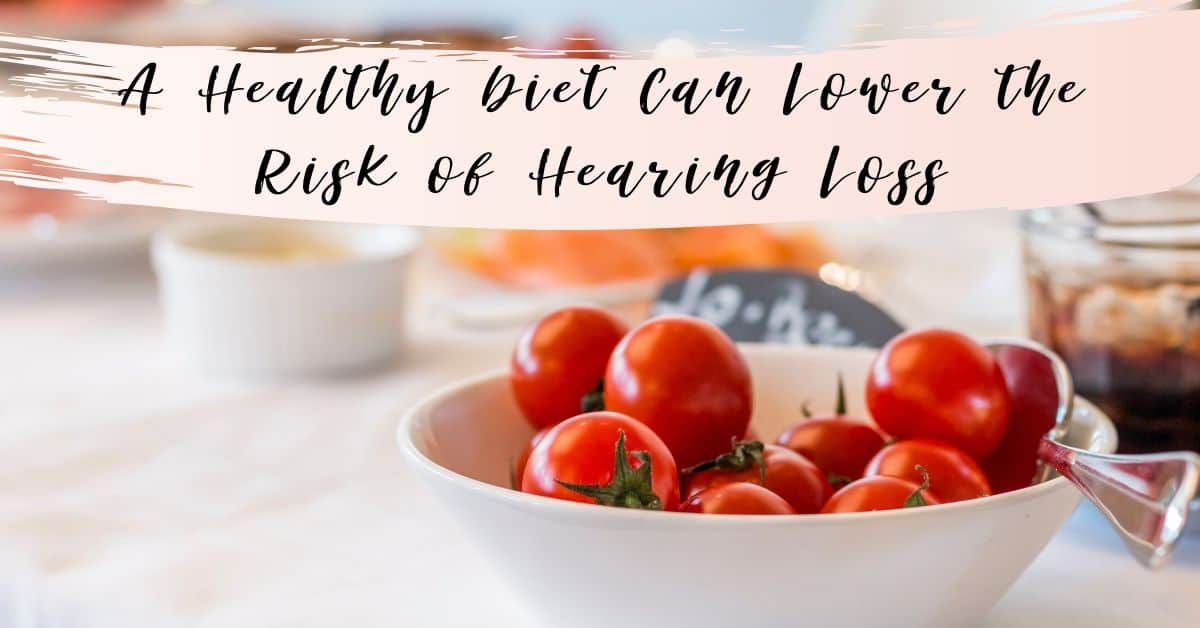Nutrition is important to our wellbeing, but the connection between diet and the auditory system is hardly ever discussed. But nutrition and listening ability are more related than you would think.
There is no food that undoubtedly causes hearing loss or prevents it. Moreover, a dietary change won’t completely repair your impaired hearing. However, according to researchers of Brigham and Women’s Hospital in Boston, certain diets can actually lower your risk of developing hearing loss.
In diversified test sites across the US, the researchers compared the hearing capacity of women over a three-year period. Twenty years of dietary data were also analyzed to see how similar the diets of the participants were to 3 commonly prescribed nutrition programmes: The Alternative Mediterranean Diet, The Dietary Approaches to Stop Hypertension (DASH) Diet, and the Alternate Healthy Index-2010.
Women whose diets followed closely these diet regimens had a 30 per cent reduced risk of their hearing sensitivities deteriorating in the mid-frequencies compared to women whose diets did not follow any of prescribed diets closely. Similarly, they were 25 per cent less likely to have a significant loss of high frequency sound sensitivity.
“The benefits of adherence to healthful dietary patterns have been associated with numerous positive health outcomes and eating a healthy diet may also help reduce the risk of hearing loss,” concluded lead author Sharon Curhan, M.D., whose area of research interest focuses on modifiable risk factors of hearing loss and tinnitus.
Nutrients to help us hear
Now that we are armed with his information, what foods should we focus on? Some of the staples of a DASH or alternative Mediterranean diet provide us with a whole range of nutrients beneficial to our hearing. Let’s look at some of them in more detail.
Potassium: Potassium helps your body to control fluid levels. Potassium has a big impact in your ear health because your inner ear is filled with fluid. The inner ear hair cells capture the vibrations in this fluid and convert them into electrical signals to be sent to the brain. These signals are perceived by the brain as sound. Eat bananas, spinach, tomatoes, lima beans and even yogurt and dairy to ensure you are receiving enough potassium.
Folic Acid: Folic acid, a mineral in the blood responsible for new cell development, is another nutrient which is essential to your hearing health. Studies indicate that adults with low concentrations of folic acid are more vulnerable to age-related hearing loss, because lower folic acid in the blood means poor overall cell health and reduced blood flow. Make sure you’re getting your dark greens, such as spinach, broccoli and asparagus to get your needed doses of folic acid.
Vitamin B-12: In the 1999 study, older women with hearing loss were found to have 48% less folate than women with good hearing. Vitamin B12 can be found in animal sources including meat, fish, eggs, dairy products and milk. There are other sources available, for example fortified cereals and nutritional yeast, if you are vegetarian or vegan.
Vitamin C: This vitamin supports our ears to preserve our hearing by working with other antioxidants to remove free radicals from the body. Studies have shown that vitamin C supplementation can decrease sudden sensorineural hearing loss symptoms. Luckily, getting more vitamin C in your diet is easy. You should eat more citrus fruit, papaya, strawberries, bell pepper, broccoli, Brussels sprouts and dark leafy greens are also packed with vitamin C.
Omega-3 Fatty Acids: A study published in the American Journal of Clinical Nutrition in 2010 showed that the threat of age-related hearing loss was 42 percent lower among respondents with who ate at least two servings each week of oily fish rich in Omega-3s. The best fish to eat for Omega-3s are sardines, mackerel and salmon.
Desert Valley Audiology
Begin your hearing health program with a hearing assessment by us here at Desert Valley Audiology. If a hearing loss is found, we can help you find the treatment that suits your lifestyle, budgets and hearing loss level. Contact us today for an appointment!

